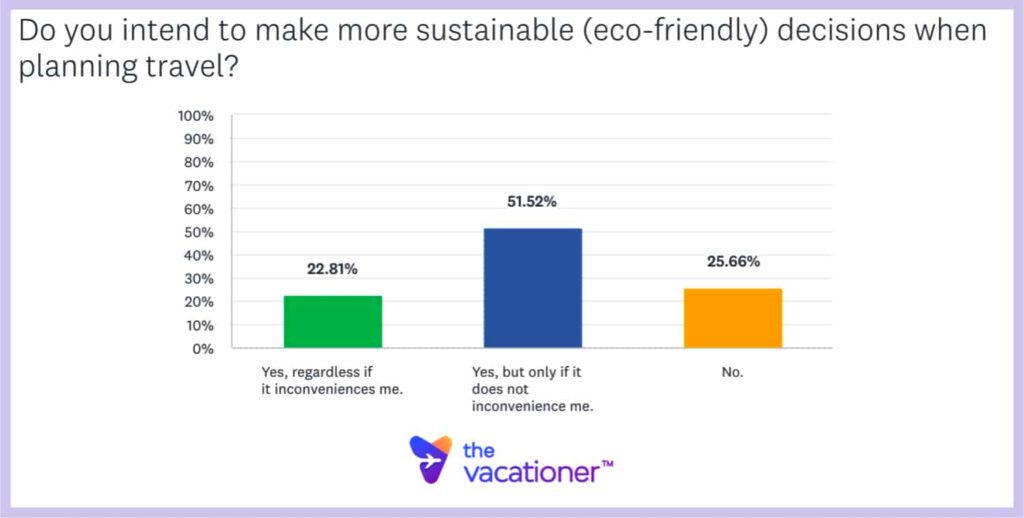[ad_1]
Skift Take
Although some travelers are committed to making their trips greener, the travel industry has struggled to take advantage of that desire due to its inability to provide more affordable and practical sustainable trip options.
Most U.S. travelers are interested in going on more environmentally friendly forms of travel, but they’re largely finding it challenging to do so.
Although a recent survey by The Vacationer revealed that roughly 74 percent of American adults respondents intend to make greener travel decisions, a far fewer percentage are shelling out money to do so. Along the same lines, Skift Research found in its December 2022 U.S. Travel Tracker survey that only 23 percent of travelers paid extra for a more sustainable travel option in the past 12 months.
“I think it comes down to the perceived cost of sustainable travel for some people. With inflation still high, many Americans are struggling to buy groceries, pay rent, and purchase gas,” said Eric Jones, co-founder of The Vacationer.
“While sustainable travel may still be important to them, its current level of importance is very low when they are attempting to make ends meet,” he said.
Almost 82 percent of respondents in The Vacationer’s 2023 sustainable travel survey stated greener travel is either very important or somewhat important to them, a strong sign of the significant desire for more environmentally friendly travel.
“More American adults are aware of and realize how urgent the climate crisis is,” said Jones, a Rowan College of South Jersey professor who has conducted studies and surveys on travel.
“While it will take a group effort, many people want to do their part, even if it is seemingly small like opting for a low-emissions flight,” Jones said.
While at least 32 percent of Americans in Skift Research’s survey said they spent more than $100 extra for cruises, flights and accommodation with sustainable options over the previous 12 months, The Vacationer found 52 percent of consumers would travel more sustainably — but only if it doesn’t inconvenience them. Jones defined inconvenienced as forgoing more comfortable, cheaper or logistically friendly travel options, citing taking a more expensive flight at inconvenient times because it has lower emissions as one example.
He added that the perceptions of sustainable travel being both expensive and impractical have been significant barriers, noting that high inflation is already making travel difficult for many people. Nearly 60 percent of respondents to the Vacationer’s survey said cost was the most important factor when booking travel. Only about 5 percent listed sustainability and carbon footprints as the most critical considerations when trip planning.
“Until sustainable travel options become more affordable and convenient, it is not likely to be the top priority for people when booking travel,” Jones said.

[ad_2]
Source link
